Rolex Oyster steel models are hard to come by and are trading well above their original retail price. For just a bit more money you can purchase alternative models from Audemars Piguet’s Royal Oak line. Is it worth it? We find out in this latest visit to the WatchTime archives.

Chronographs
The Rolex Daytona in steel has been a rarity for quite some time. But the confusing maelstrom of wanting something and not being able to get it has been spinning faster and faster in recent years. Retailers rarely keep waiting lists for this most desirable Rolex model, and resale values are almost twice as much as the retail price of a new watch ($13,150). So now the question is this: Instead of buying a pre-owned Rolex chronograph for $25,900, why not put in a little bit more and treat yourself to a Royal Oak Chronograph Automatic for $26,300? Even though it’s not available everywhere either, the extra cost is minimal.
Both watches have stainless-steel cases and bracelets. The Royal Oak is available in two sizes — 38 mm and 41 mm — while the Daytona falls right between them at 40 mm. Audemars Piguet wins the battle of thickness here, measuring only 11 mm high, which is 1.5 mm thinner than the Rolex. Water resistance of the Royal Oak is only 50 meters, however — much less than the Rolex specs of 200 meters. And a scratch-resistant ceramic bezel also makes the Daytona a more robust watch. The screw-down pushers on the Daytona also provide enhanced durability. Only the crown of the Royal Oak is screw-down, but that means its chronograph function is ready to use at a second’s notice.
With its integrated, gradually narrowing bracelet, polished chamfers and screws set in brushed-finished surfaces, the Audemars Piguet has a more elegant look than the Rolex with its sporty accents like the tachymeter track. Elegance is underscored by the Royal Oak “Grande Tapisserie” pattern on the dial. The interplay of the circle and octagonal shapes is a fine, characteristic Royal Oak feature. Counter rings and luminescent markers make the Rolex stand out, but otherwise it looks like a sport chronograph prototype.

Unfortunately, neither watch model has a transparent caseback so their mechanisms can’t be seen. The Rolex is powered by the in-house Caliber 4130 with self-winding mechanism. It was first introduced in the year 2000 with modern features like a 28,800-vph rate for superior accuracy. A vertical clutch prevents the second hand from jumping at the start. An elegant column-wheel control ensures smoothly operating pushers, and the movement has a conveniently long power reserve of 72 hours. The balance bridge and the proprietary blue Parachrom hairspring are designed to better withstand impacts and magnetic fields. With regulating screws on the balance, a chronometer certificate and the company’s own stricter standards, every Rolex is created to run at a rate of ±2 seconds per day.
In this area, the Royal Oak cannot compete. Caliber 2385 is based on the Frédéric Piguet Caliber 1185 from 1987, which was also used by Blancpain. With its frequency of 21,600 vph and a power reserve of only 40 hours, its advantage here is its thin architecture. But it also has a column wheel on board as well as a vertical clutch, used here for the first time. The Triovis fine regulator does not allow the hairspring to breathe, but in contrast to the Daytona, it has a date indication.
Is the difference worth the price? With the Audemars Piguet, the additional cost is attributed to the complex finishing of the case, bracelet and dial. The Rolex is sturdier and more accurate. Anyone who wants to avoid paying more than list price should look to the Royal Oak as a viable alternative.
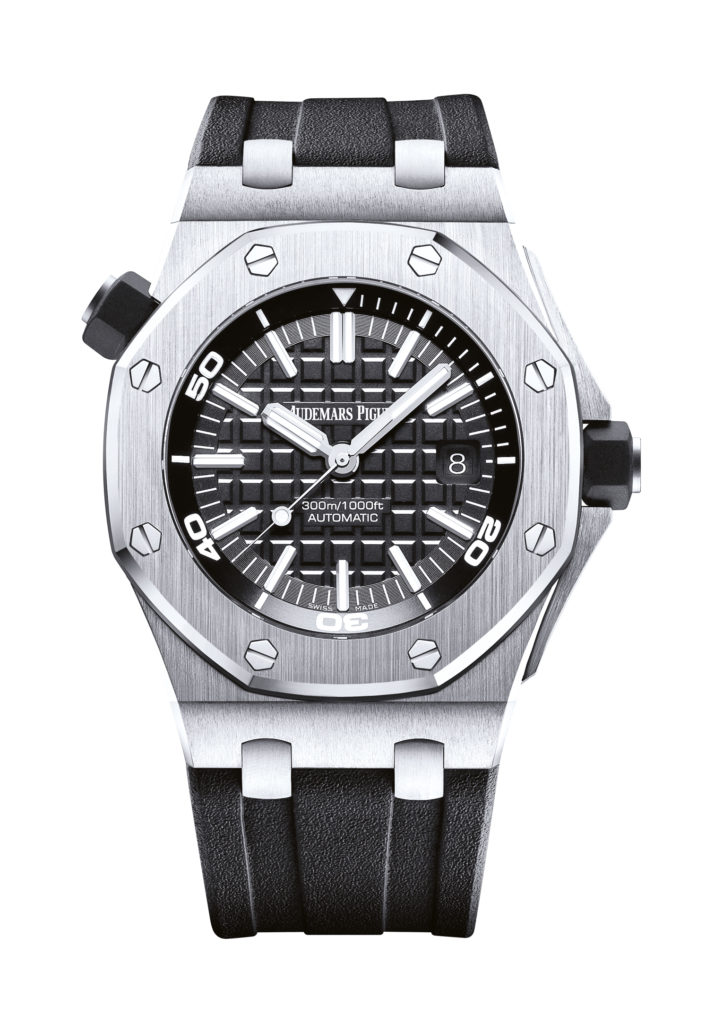
Dive Watches
While Rolex has gained fame for its dive watches, the selection at Audemars Piguet is limited. Its sole dive model, the Royal Oak Offshore Diver, is available in different colors at a list price of $19,900. At Rolex there are three different models — the Submariner, the Sea-Dweller and the Deepsea — listed here from lowest to highest in both price and water resistance. Even the least expensive, the Submariner, has water resistance of 300 meters, which equals that of the AP Diver. With a date indication, the new Rolex Submariner Date, introduced in 2020, is priced at $9,150. The Audemars Piguet is more expensive, priced at $20,400, so it theoretically should offer more.
The AP’s crystal caseback and beautiful in-house Caliber 3120 look really amazing. The movement has a 21,600-vph frequency and a power reserve of 60 hours. A balance bridge increases robustness and the fine regulation via weights ensures good adjustability and a free-sprung hairspring. Also, the solid 22k gold, engraved oscillating weight and other decorative finishes make an impressive picture. The mechanism for the internal bezel and the movement is rather thick, however — the Diver in the sportier Royal Oak Offshore line measures 14.1 mm high.
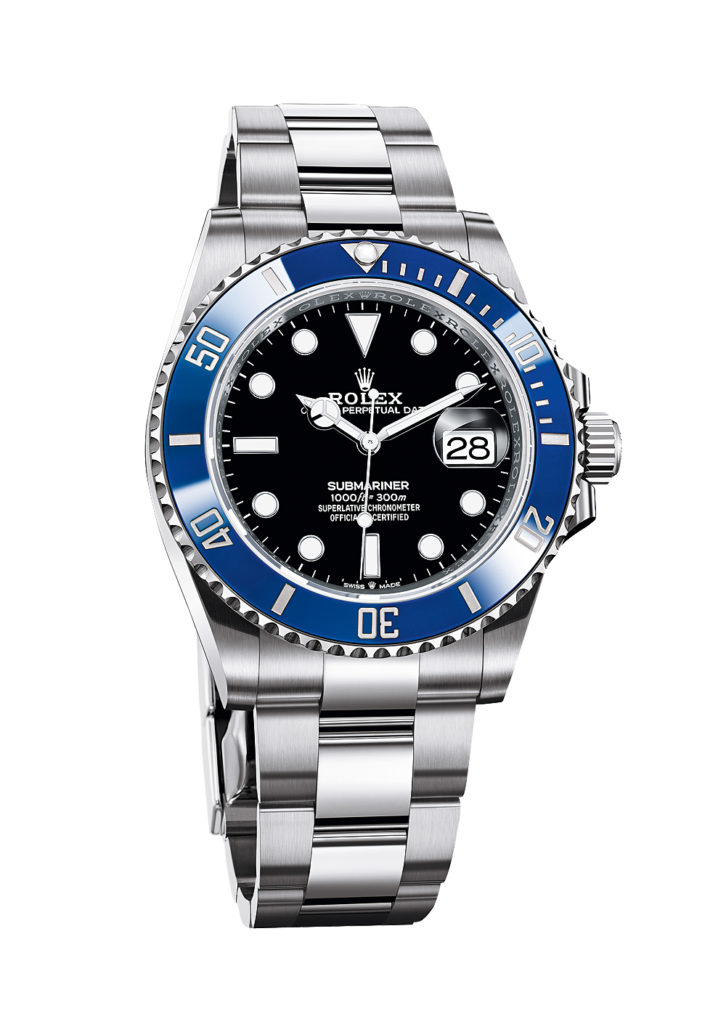
The new Submariner Date has a diameter of 41 mm, slightly larger than the previous version’s 40-mm diameter. Again, the movement is hidden behind a solid caseback. This dive watch is now powered by in-house Caliber 3235, which has a power reserve of 70 hours. The new movement has a more efficient shock absorber and improved mainspring over its predecessor, Caliber 3135, which had a 48-hour power reserve. Rolex can also boast a chronometer test and regulating specifications that are just as strict as those for the Daytona.
The Submariner Date has an extremely practical finely graduated extension system in the clasp. The length of the rubber strap of the AP Diver can be easily adjusted with the pin buckle, but that means foregoing the truly superb Royal Oak metal bracelet. The Diver has one unusually clever feature: instead of replacing its characteristic octagonal brushed finish bezel and polished hexagonal screws, Audemars Piguet adds an adjustable inner track to measure dive time. Rolex gets points for its cleanly ratcheting rotating dive bezel whose quality is virtually unmatched.
The Audemars Piguet has a beautiful movement and the advantage of fine and detailed workmanship of its case. But the Rolex is the more practical watch and so much less expensive that the design must be the deciding factor.


Three-hand Watches
In 2019, Audemars Piguet revised the iconic Royal Oak in its basic 41-mm variation. In addition to a slimmer bezel and removal of the “Automatic” label on the dial, the watch has a newly developed in-house movement. Caliber 4302 replaces the 3120. Measuring 32 mm across, it is considerably larger in diameter and slightly thicker, at 4.8 mm. This makes room for a larger mainspring and provides a generous 70-hour power reserve despite the modern rate of 28,800 vph.
The classic Rolex Datejust, which also measures 41 mm across, also uses new in-house Caliber 3235, which, like the Audemars Piguet movement, has a 28,800-vph rate and a 70-hour power reserve. The new movement replaced the 3135. The Datejust 41 is priced at $7,650 in Oystersteel with an Oyster bracelet. The Royal Oak has a list price of $20,400, more than twice as much as the Rolex, but is almost impossible to find in the boutiques. Even with a Jubilee bracelet and fluted white-gold bezel, the Rolex has a retail price of $9,900.
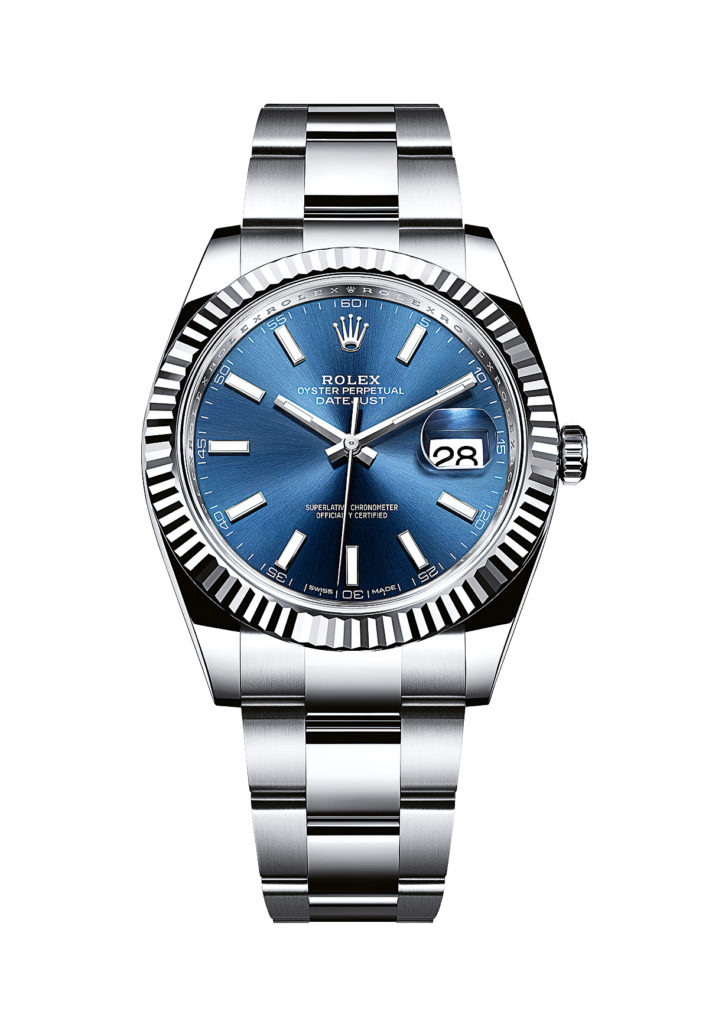
In the three-hand watch competition, this time the Audemars Piguet is the more sought-after watch. Its movement is more attractive and can be viewed through the transparent caseback. But better availability of the Datejust helps keep its price in check — so even with more character and a highly detailed case, the Royal Oak is less competitive in this pairing because of its steep price.
Hardly any brand builds such well made, industrialized, manufacture watches as Rolex. They are consistently robust, accurate and of impeccable quality. Yet it’s clear that Audemars Piguet is also playing at a top level here with the fine finish of its brushed surfaces, detailed cases and bracelets, and its own in-house movements. Also, the hype around the Rolex steel models drives their prices up. So, is the higher cost of an AP worth it? It most certainly is when you’re looking at the chronographs and their minimal price difference. With the dive watches and three-hand models, it depends more on personal taste. Try one on — then decide for yourself whether you think the additional price is worth the move from a Rolex to a Royal Oak.

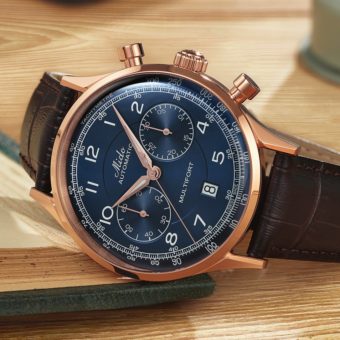
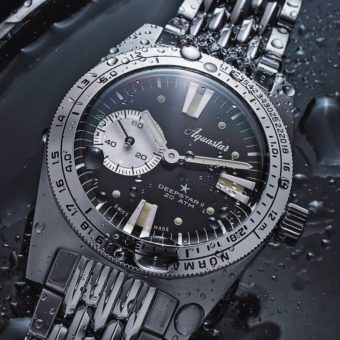
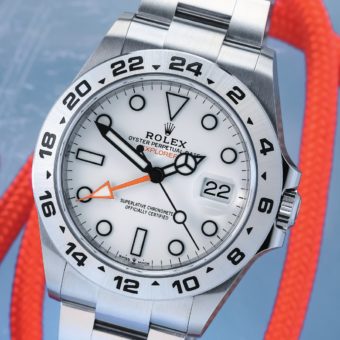
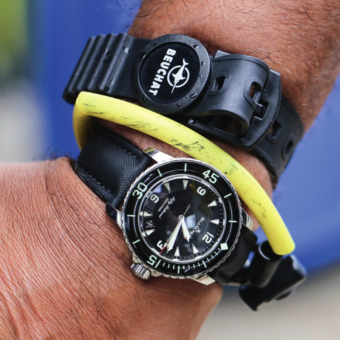

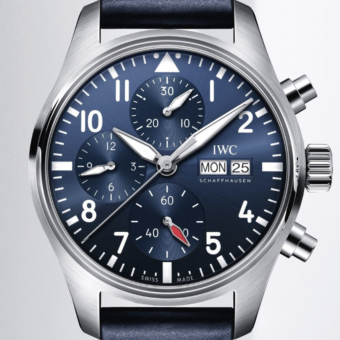
AP steel at retail is also nonexistent, so what’s the point here? Both brands have major problems with scarcity and an out of control grey market.
Exactly! You said it all.
Give me a break — AP is greatly over priced at any level.
Right you are!
Great article Jens. What you say makes a lot of sense and both watch brands enjoy very high status amongst watch aficionados. Indisputably both brands make superb , reliable time pieces .
My choice for the money is and has always been Rolex but that is my bias. I have been fortunate to be able to acquire my Rolex watches at retail otherwise I could not afford to pay grey market prices and there is no way I could afford AP watches at retail.
One minor correction Jens the Daytona is water resistant to 100 metres not 200 but a great article nonetheless.